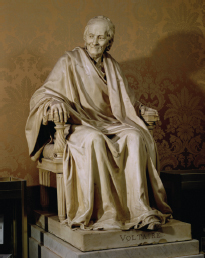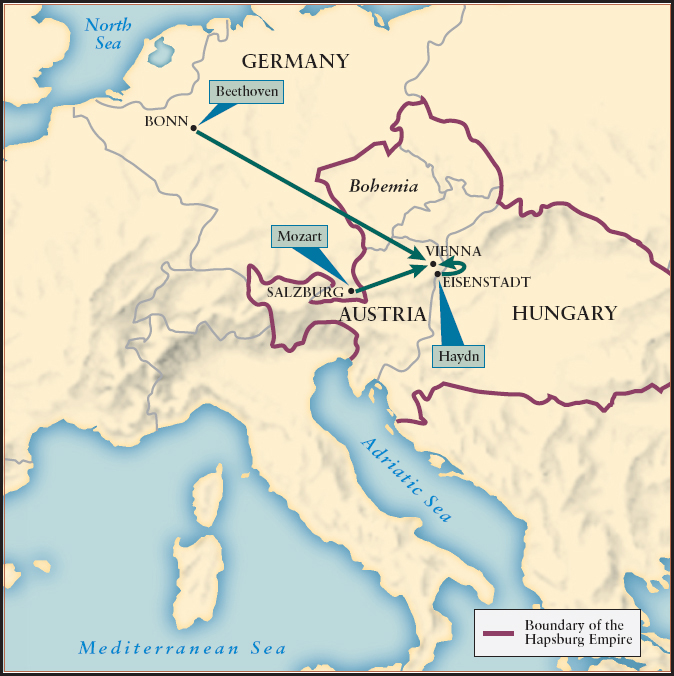1 | The Enlightenment and Music
To describe Joseph II as an “enlightened” ruler is both to commend him and also to locate him in European intellectual history. Like a number of other rulers of the time, Joseph II was strongly influenced by an important intellectual movement of the eighteenth century known as the Enlightenment. This movement also helped to define the music that flourished under his reign.

Centered in France, the Enlightenment had strong roots in British philosophy and strong offshoots in Germany and Austria. Its original source was the faith in reason that led to the great scientific discoveries of the Baroque period, from Galileo to Newton and Leibniz. Now, however, the emphasis moved away from the purely intellectual and scientific toward the social sphere. People were less intent on controlling natural forces by science than on turning these forces to human benefit. People also began to apply the same intelligence that solved scientific problems to problems of public morality, education, and politics.
Social injustice came under especially strong fire in the eighteenth century; so did established religion. For the first time in European history, religion ceased to be an overriding force in many people’s minds. There were currents of agnosticism and even outright atheism — to the outrage of the English poet and mystic William Blake:
Mock on, mock on, Voltaire, Rousseau:
Mock on, mock on, ’tis all in vain!
You throw the sand against the wind,
And the wind blows it back again.
The two French philosophers named by Blake are always mentioned in connection with the Enlightenment: François Marie Arouet, who wrote under the pen name Voltaire (1694–
